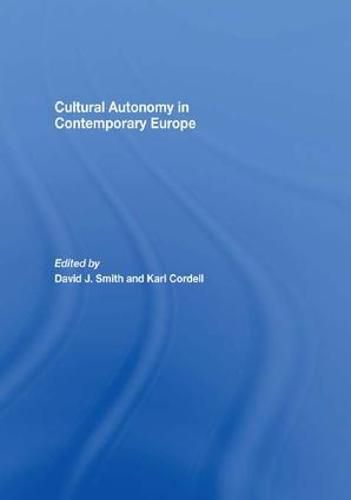Readings Newsletter
Become a Readings Member to make your shopping experience even easier.
Sign in or sign up for free!
You’re not far away from qualifying for FREE standard shipping within Australia
You’ve qualified for FREE standard shipping within Australia
The cart is loading…






In this volume, some of the world’s leading scholars involved in researching the fields of ethnopolitics, nationalism and ideas of nation and state, have come together to produce a work that is both original and accessible. The volume explores the rich, but sadly neglected tradition of thought on non-territorial cultural autonomy as exemplified by the work of Karl Renner and Otto Bauer and the European Nationalities Congress of the 1920s. Through a combination of theoretical analysis and case study approaches, the authors challenge conventional thinking on how best to reconcile competing claims over territory and cultural expression. Drawing upon a range of examples from countries such as Russia, Romania and Hungary, and by comparing the situation of territorially-based ethnic minorities with those - principally the Roma - who lack identification with a given state or states, the authors of this volume seek to supply answers and question received truths.
$9.00 standard shipping within Australia
FREE standard shipping within Australia for orders over $100.00
Express & International shipping calculated at checkout
In this volume, some of the world’s leading scholars involved in researching the fields of ethnopolitics, nationalism and ideas of nation and state, have come together to produce a work that is both original and accessible. The volume explores the rich, but sadly neglected tradition of thought on non-territorial cultural autonomy as exemplified by the work of Karl Renner and Otto Bauer and the European Nationalities Congress of the 1920s. Through a combination of theoretical analysis and case study approaches, the authors challenge conventional thinking on how best to reconcile competing claims over territory and cultural expression. Drawing upon a range of examples from countries such as Russia, Romania and Hungary, and by comparing the situation of territorially-based ethnic minorities with those - principally the Roma - who lack identification with a given state or states, the authors of this volume seek to supply answers and question received truths.